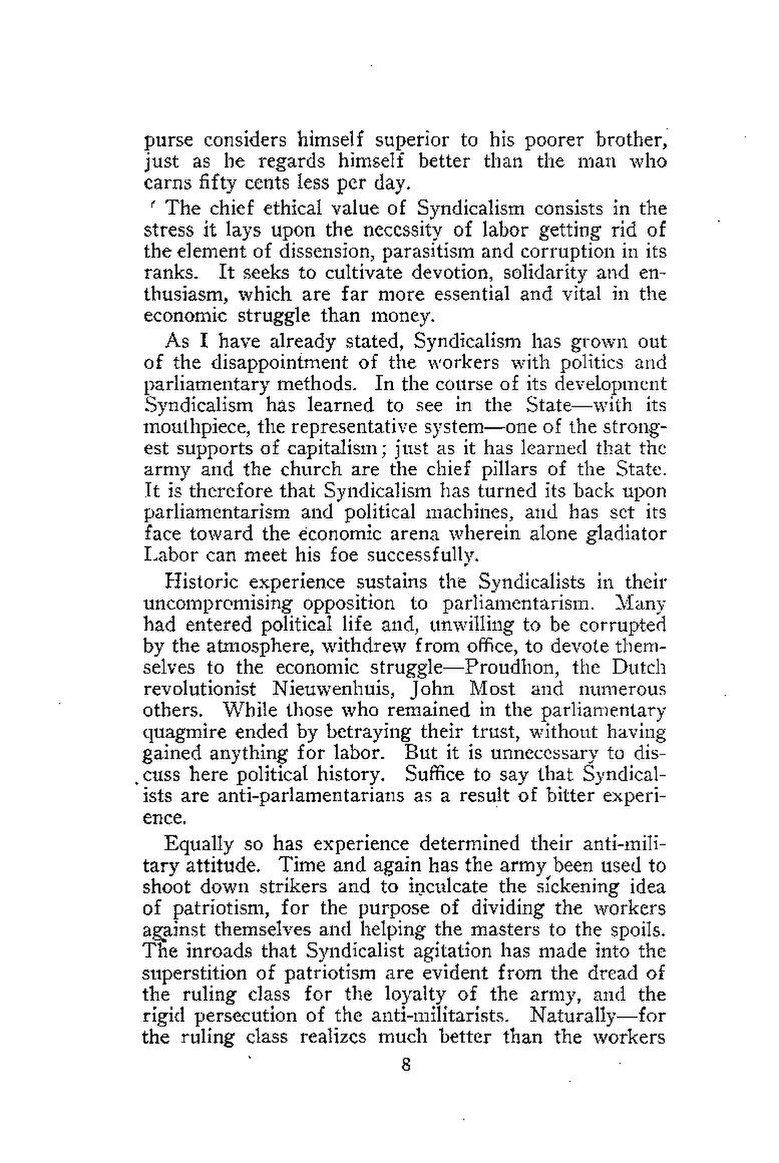purse considers himself superior to his poorer brother, just as he regards himself better than the man who earns fifty cents less per day.
The chief ethical value of Syndicalism consists in the stress it lays upon the necessity of labor getting rid of the element of dissension, parasitism and corruption in its ranks. It seeks to cultivate devotion, solidarity and enthusiasm, which are far more essential and vital in the economic struggle than money.
As I have already stated, Syndicalism has grown out of the disappointment of the workers with politics and parliamentary methods. In the course of its development Syndicalism has learned to see in the State-with its mouthpiece, the representative system—one of the strongest supports of capitalism; just as it has learned that the army and the church are the chief pillars of the State. It is therefore that Syndicalism has turned its back upon parliamentarism and political machines, and has set its face toward the economic arena wherein alone gladiator Labor can meet his foe successfully.
Historic experience sustains the Syndicalists in their uncompromising opposition to parliamentarism. Many had entered political life and, unwilling to be corrupted by the atmosphere, withdrew from office, to devote themselves to the economic struggle—Proudhon, the Dutch revolutionist Nieuwenhuis, John Most and numerous others. While those who remained in the parliamentary quagmire ended by betraying their trust, without having gained anything for labor. But it is unnecessary to dis.cuss here political history. Suffice to say that Syndicallsts are anti-parlamentarians as a result of bitter experience.
Equally so has experience determined their anti-military attitude. Time and again has the army been used to shoot down strikers and to inculcate the sickening idea of patriotism, for the purpose of dividing the workers against themselves and helping the masters to the spoils. The inroads that Syndicalist agitation has made into the superstition of patriotism are evident from the dread of the ruling class for the loyalty of the army, and the rigid persecution of the anti-militarists. Naturally—for the ruling class realizes much better than the workers
8
